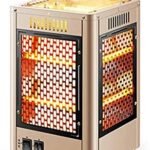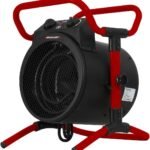
Table of Contents
There are various reasons why you might be considering a tankless water heating system, but wonder if they’re really worth it. Do the benefits justify the investment or are these systems really what the manufacturers claim them to be? The idea that these water heating systems can turn cool water into hot water instantaneously, would make anyone question how effective they are. Let’s take a look at what they do provide and what they might miss the mark on. Here are the pros and cons of a tankless water heater.
#1 PRO: On-Demand Hot Water
These systems, do in fact, deliver instantaneous hot water. They remove the “standby heat loss” that tank-style water heaters are guilty of. Units are equipped with a heat exchanger that delivers heat from one element to another. In this case, and exchange from a coil (or similar) to water. Heat exchangers like this can be found in your refrigerator or car radiator.
#1 CON: Hot Water Lag Time
While it won’t take long, the faucet is the catalyst to bring in hot water. By turning it on, you’ll be removing the cool water between it and the heat exchanger which may result in some lag time. The amount of time you’ll wait depends on how far these two are from one another.
#2 PRO: Endless Supply of Hot Water
You likely know what it’s like to be the last person in line to take a hot shower. Chances are it’s likely more lukewarm or cold. With a tankless water heater, that problem is gone. Tankless systems are designed to meet these kinds of demands so everyone has access to hot water, no matter how many people are in line for a shower.
#2 CON: Hot Water Inconsistencies
On the flip side, how much hot water can be used simultaneously may impact availability. If everyone decides to take a shower at the same time, you’ll likely experience some temperature issues. The same goes if you have multiple appliances competing with your shower. If you have the dishwasher running alongside the washer and everyone decides to take showers at the same time, the heat exchanger may not be able to keep up. This can be eliminated by being conscious of hot water usage and or, installing various tankless systems for specific appliances.
#3 PRO: Longevity
The tankless water heater is designed to last two times as long as a traditional tank system. Most quality tank systems will need to be replaced every 10-to-15 years. The tankless systems are designed to last 20-to-25 years which saves the homeowner money over decades.
#3 CON: An Investment
There is no hiding the fact that purchasing a tankless system is an investment up front. The money saved over the coming decades might be hard to justify for some people who are interested in tankless water heaters. Further, costs to install a tankless system tend to be higher because they are more labor intensive.
#4 PRO: Space Saving Innovation
The design and footprint of tankless water heaters make them a welcome option for those who have smaller homes or desire an innovative look. If you have a smaller home, these offer a great space-saving option as most are installed on a wall and can occupy an inconspicuous space.
#4 CON: Add-on Equipment May be Required
Many tankless systems, depending on geographical locations, will need a water softener. This can take up some of that saved space that you gained by installing a small tankless system.
#5 PRO: Warranty Will be Longer
Since the tankless water heater is designed to outlast traditional water heaters, its warranty is designed to do the same. As you can imagine, the investment you make can also lead to repairs that will also be an investment. Some warranties will offer full replacements making it an ideal option considering the upfront cost.
#5 CON: Warranty Stipulations
In order to ensure that the warranty stays intact, you will likely have to adhere to the maintenance requirements. This can involve things like the adding of a water softener system or an annual cleaning to ensure the tankless system is free of mineral deposits. These are added costs to consider in making a tankless water heater purchase.
#6 PRO: Electric and Gas Options
No matter what kind of grid or preference you’re working with, be that gas or electric, there is a tankless system to match it. Either will likely require you to have a professional installer do the work as these systems can be complex to install.
#6 CON: Other Options
Tankless systems are not the only options available to consider. Solar heating, for instance, is also a way to heat your water and may even require less equipment or complex installations. This option specifically could either give you a better return on investment depending on the limitations you’re willing to work through.
#7 PRO: Energy Savings
A typical homeowner could save hundreds of dollars a year by installing a tankless water heater. The efficiency of tankless systems is said to be 20-30% more efficient than traditional tank systems. With water heating being the third largest expense for a home, it makes sense to consider a tankless water heater.
#7 CON: Energy Star Options are Good Too
Energy Star water heaters offer monthly energy savings and also qualify for a tax credit. While tankless systems can and qualify to do the same, the savings to install a tankless system may not be worth it depending on your preference and the size of your home. Another advantage to purchasing an Energy Star water heater is they aren’t as complicated to install, unlike most tankless systems.
#8 PRO: Hot Water For All
Tank systems will inevitably run out of hot water. This may leave you, as we mentioned before, in a cold shower, or placing yourself on standby to do dishes as you wait for the tank system to keep up. Tankless systems won’t leave you in a lurch, for example, when your entire family is in the house, in Winter, waiting for the holidays to start. Hot water will be available and ready to use no matter how many people you might be working with.
#8 CON: Size Matters
There is, however, a caveat to this whole “hot water for all” benefit. Tankless systems are designed to heat a certain amount of water per minute. So the size, of which tankless systems come in many, is crucial when choosing the right unit for your home. You will need to consider how many people will need hot water in your home and size your tankless system to meet that demand.
#9 PRO: Environmentally Friendly
The obvious environmental impact is energy savings on your bill, but there are others to consider that will make you equally happy. Tankless systems only heat water at the moment they are requested to, so overall energy conservation is positively impacted. If you decided to go with an electric style unit, these don’t emit any greenhouse gases. Also, tankless systems have a 99% (or close to) efficiency rating, meaning what energy it makes, is what is actually uses.
#9 CON: More of a Luxury
While tankless systems are more “green” than other traditional tank systems, their green benefits are more collective than personal. Tankless water heaters will make you feel good about your carbon footprint, but that won’t completely translate into direct savings for you. When you decide to purchase a tankless water heater, chances are it is more a luxury for all its features.
#PRO 10: Increase Property Value
Each time you decide to add a specialty system to your home, like a tankless water heater, you are increasing your property value. This can result in being more competitive when trying to sell your home.
#CON 10: It Might Not Matter
When you convert a traditional system to a tankless system in the wrong neighborhood, you might not see a return on investment. Just like with any home repairs and upgrades, if you’re not in the right location, the upgrades may price your home out of the market. To avoid this, really calculate your home worth and consider its market value before making this purchase, especially if you hope the unit will help you gain more value for your home.
In Conclusion
Tankless water heaters are not going to be the solution for everyone. Many times these systems are positioned to be money-saving options, and they are, but they might not be significant enough to justify your purchase. Tankless systems tend to be a luxury for most purchasers, with a few added economic and environmental benefits along the way.









